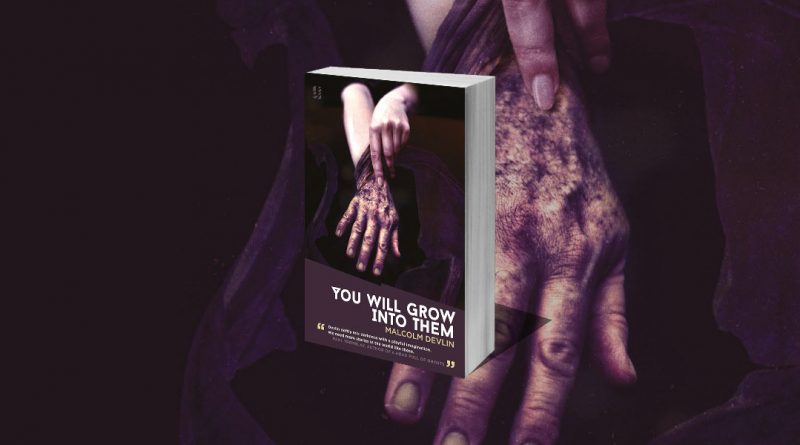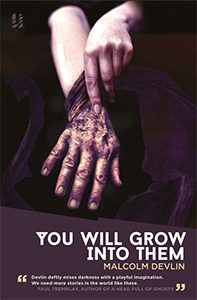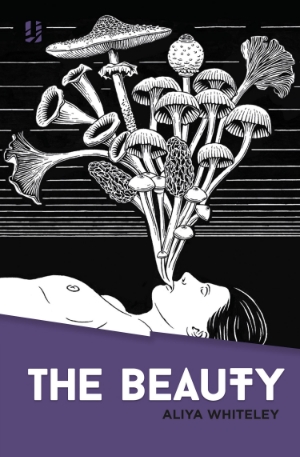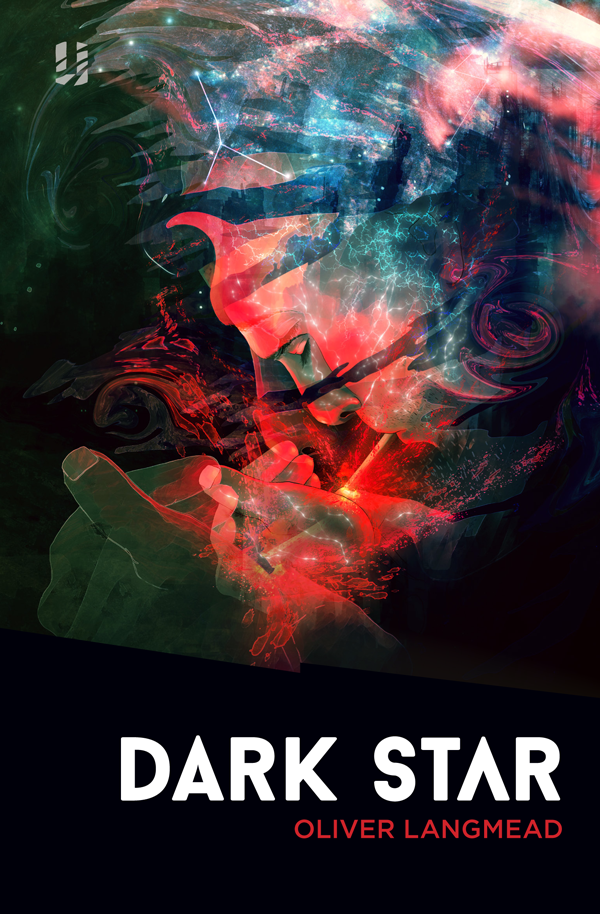You Will Grow Into Them by Malcolm Devlin
-Reviewed by Rhys Knapman-
You Will Grow Into Them is a single author collection of ten short horror stories by Malcolm Devlin. Published by Unsung Stories, the collection varies greatly in subject matter and perspective.
‘Two Brothers‘ follows the eleven year old William as he stews in hostile feelings for his father ‘the day before he found the boy in the woods’. This hostility towards familial, particularly parental, figures is a common theme throughout the first few stories in the collection. We are told that their father was—and still is—distant, leaving him and his brother, Stephen alone with the staff (their mother is stated to have died previously). The story begins with Stephen having been sent off to ‘Greyhurst’ school.
“The day before he’d left, Stephen had worn his brave face and it was a poor fit.”
However, William’s distant father appears to be warming up. He invites William to wait with him for Stephen coming back from the school. Due to the boredom our protagonist has been experiencing, he goes willingly (during the time Stephen has been gone, William has been planning a web of lies about what he has done so that ‘Stephen would never know that William had been lonely at all’). It is a shame for William, then, that the Stephen who comes home is not the same one who left.
While the story does end with closure, it enables the reader to form their own conclusions. The historical setting only strengthens the horror and overall tone of the piece, as it helps to reinforce the isolation suffered by William throughout.
‘Breadcrumbs‘ is unique within the collection by being written in the present tense. This helps to further differentiate it from every other piece in the collection while also making the horror immediate, it is happening as you read rather than having already happened. The story veers off into fantasy, with the majority of the horror coming from ‘body horror’ rather than tension or atmosphere.
‘Breadcrumbs’ is divided into two parts:
The first introduces us to our protagonist, Ellie. We find her ‘alone in her bedroom on the fifteenth floor. She sits crossed-legged on her bed,’ planning fairy tale inspired revenge against her family. Apparently, they have abandoned the teen in the flat and gone out to a ball. Over the first part of the story, this is gradually revealed to be a lie. During this section we are also given a look into the psychology of our protagonist. She has trouble telling reality from her own fictions and appears to believe she is the point about which the world spins.
The second, longer, part begins after a forest appears to have grown in the city. The forest overwhelms everything and knocks out any and all forms of technology the characters try to use. For a moment Ellie appears to feel a little sad that she will never see her family again, and then she gets pulled into an entirely different plot.
“A blackbird rustles past. She wonders if it’s a real blackbird, or if it was once someone she knew.”
‘Breadcrumbs’ contains many elements that could be made into fully rounded stories by themselves.
Perhaps the strongest short story in the anthology is ‘Passion Play‘. It plays on the Lovecraftian fear of the unknown, as well as the perversion of religious imagery common in more gothic tales, to create a beautifully strange crime/horror blend.
The story begins with our first person protagonist about to retrace a missing person’s last steps. Apparently, she was friends with the missing person (Cathy McCullough) and was among the last people to see her alive. They are also similar enough in appearance to make a convincing double for the media, though this is constantly debated in the narration.
“Mrs McCullough is looking at me like she doesn’t know Cathy anymore. She’s looking at me as if she’d take anything of her she can get.”
The walk takes the protagonist and a small army of journalists and photographers up to the old church. While this walk allows Devlin to describe the last movements of Cathy, and to introduce a few minor characters that make the world feel truly alive, it is used largely as a framing device for a number of flashbacks related to a larger mystery.
Previously, Cathy and the protagonist entered the church and saw an unfamiliar image on some paintings depicting the Passion of Jesus. This figure appears to be scratched out and earns the nickname ‘Cross-hatch man’ within the text. While both girls are curious about who he is, the mystery only becomes an obsession for Cathy.
‘Passion Play’ blends normal life and uncanny horror together to great effect, mixing in a suitable amount of humour. This combination makes the voice convincing as a teen’s and makes the whole piece compelling to the conclusion.
Overall, You Will Grow Into Them is a collection for all kinds of horror fans. Imagery and emotion are described with great care and the characters’ histories and presents blend together without overt exposition. I hope to read more from Devlin, especially if he ventures further into supernatural, Lovecraftian horror.






